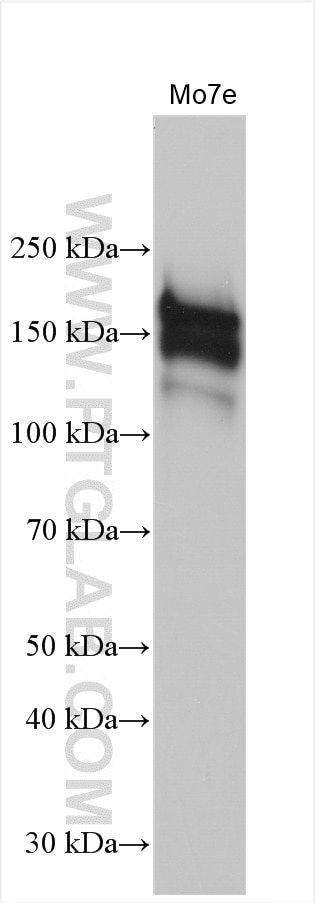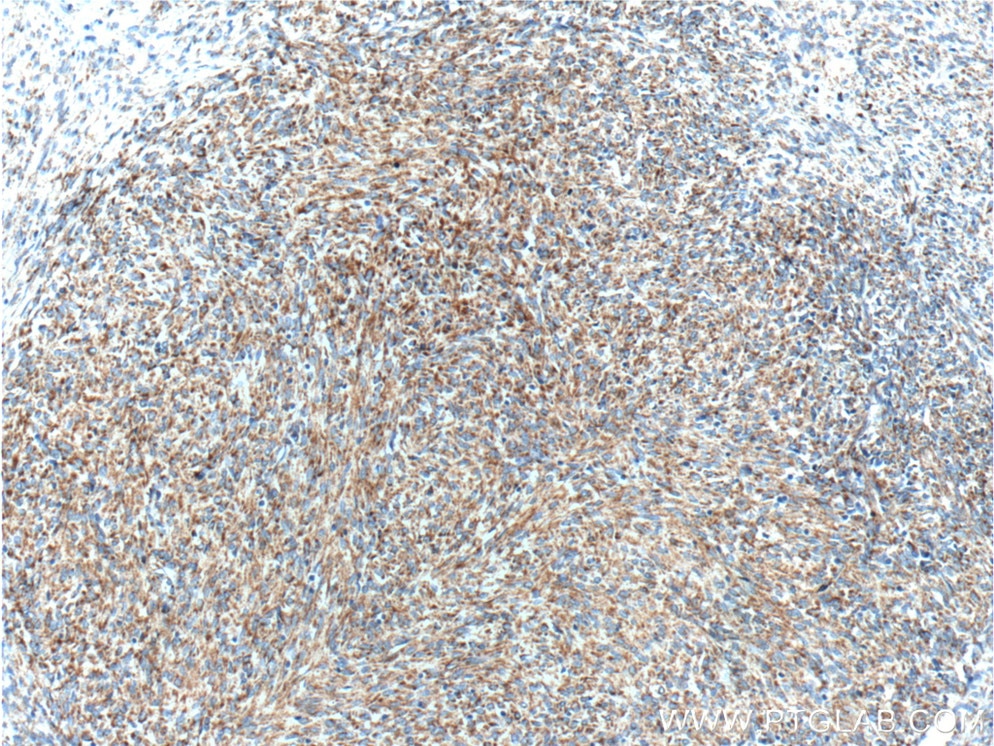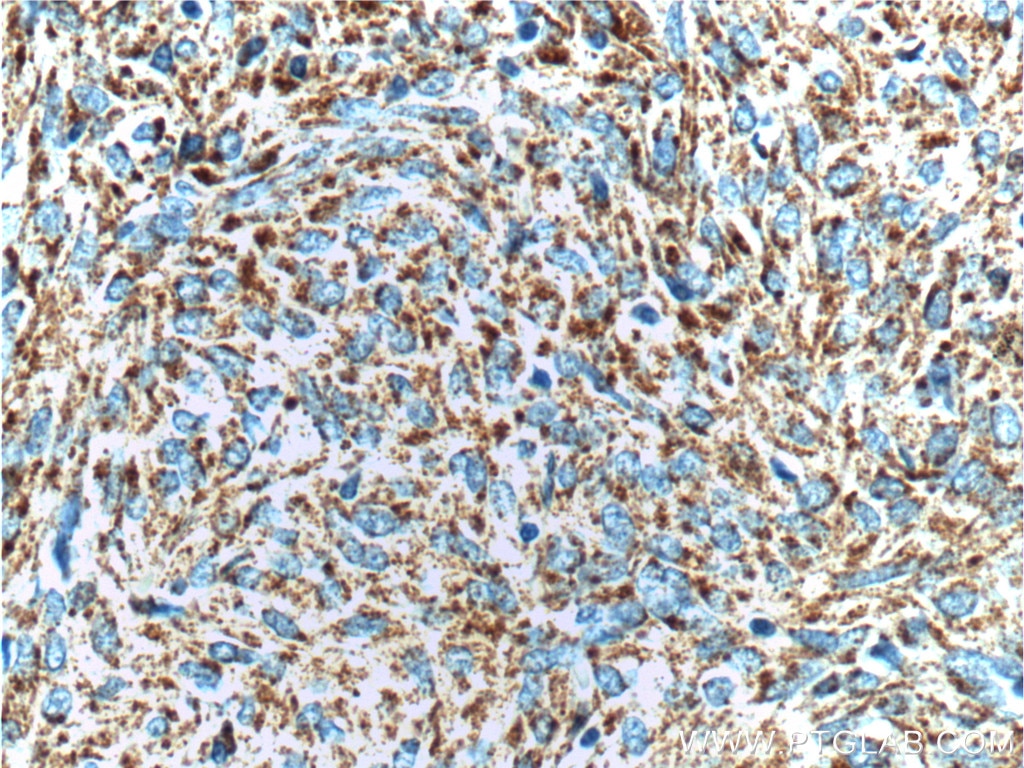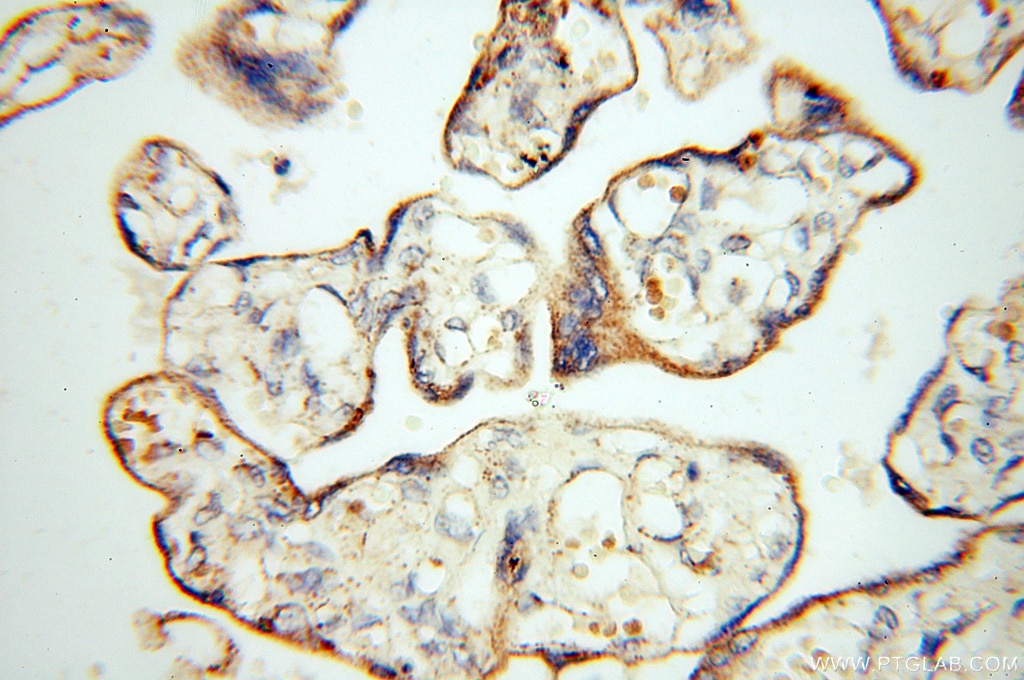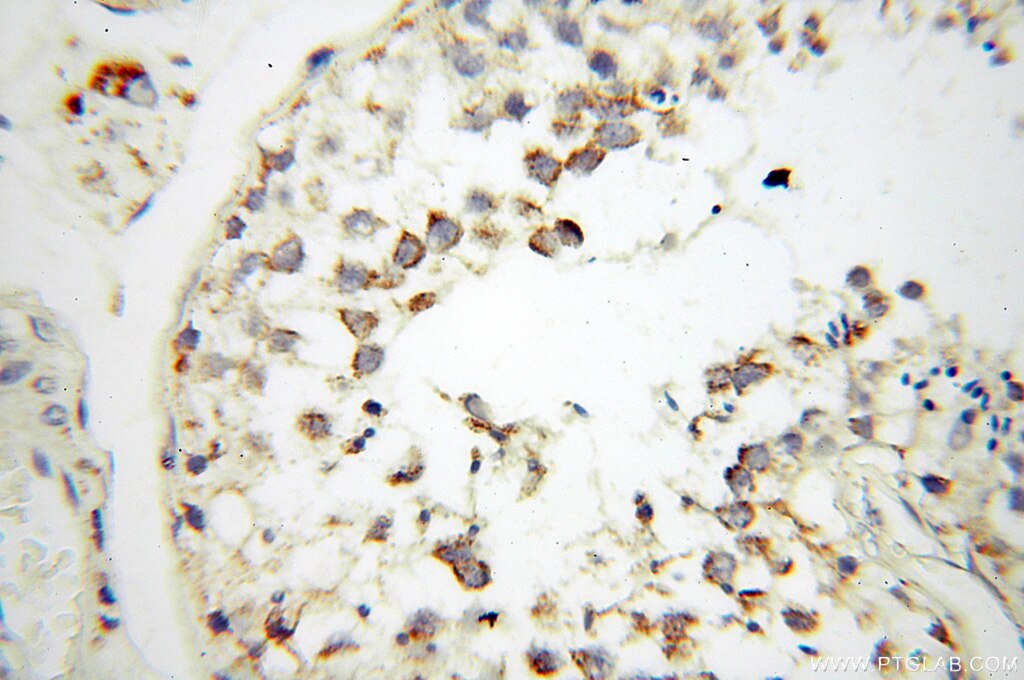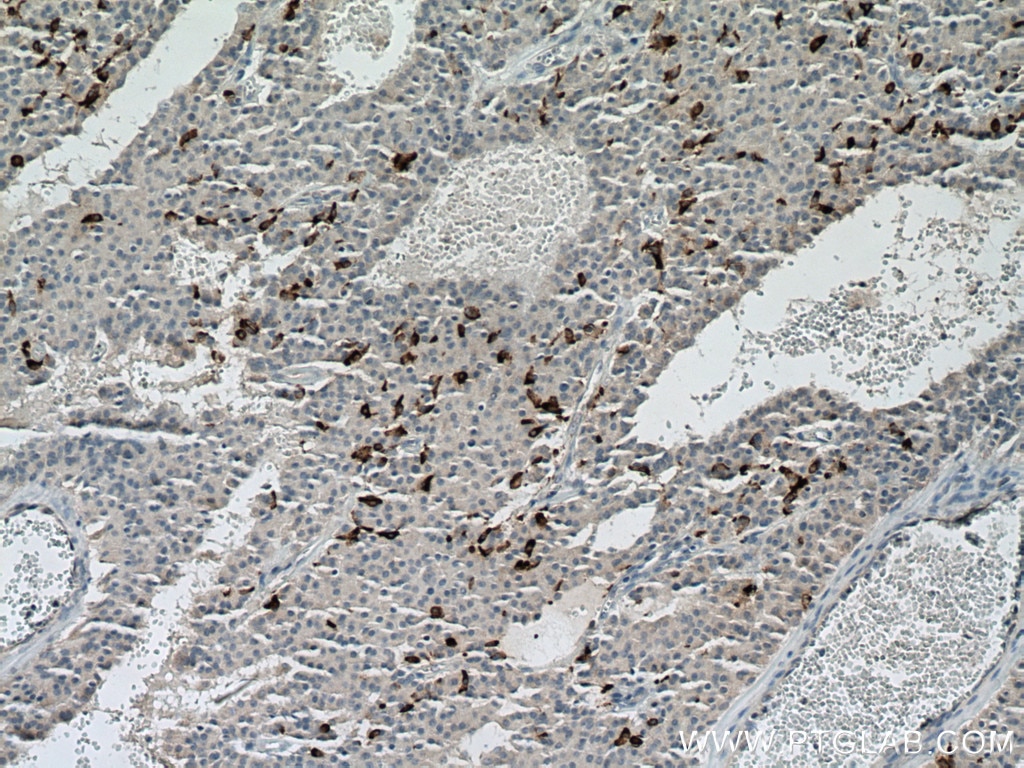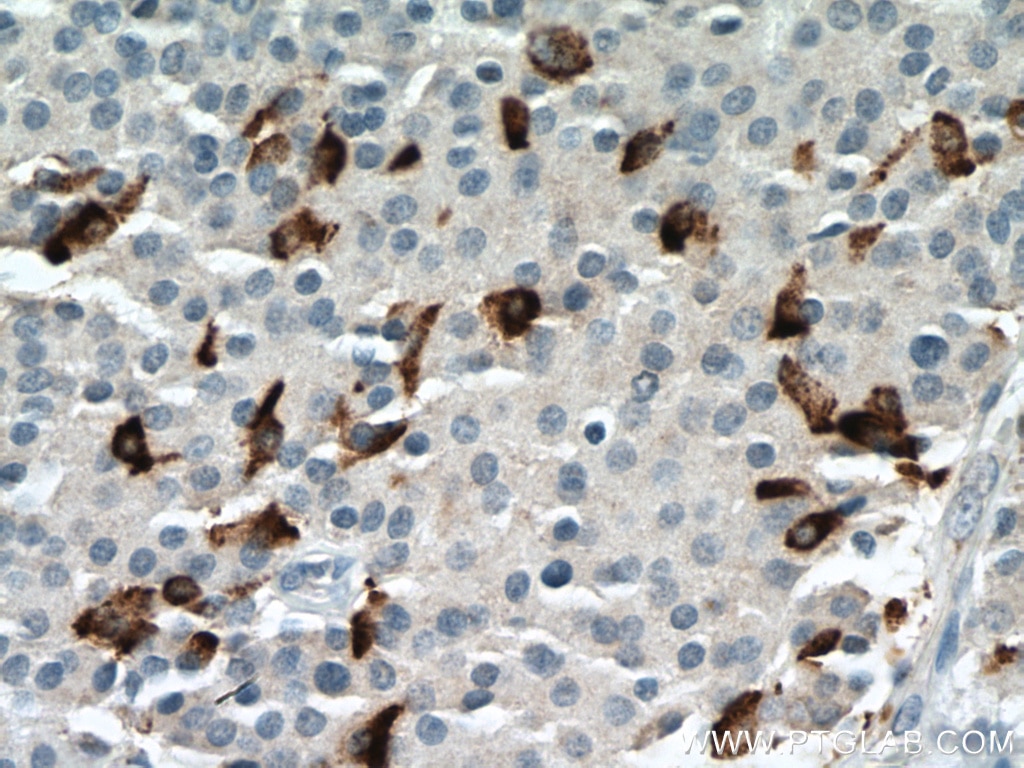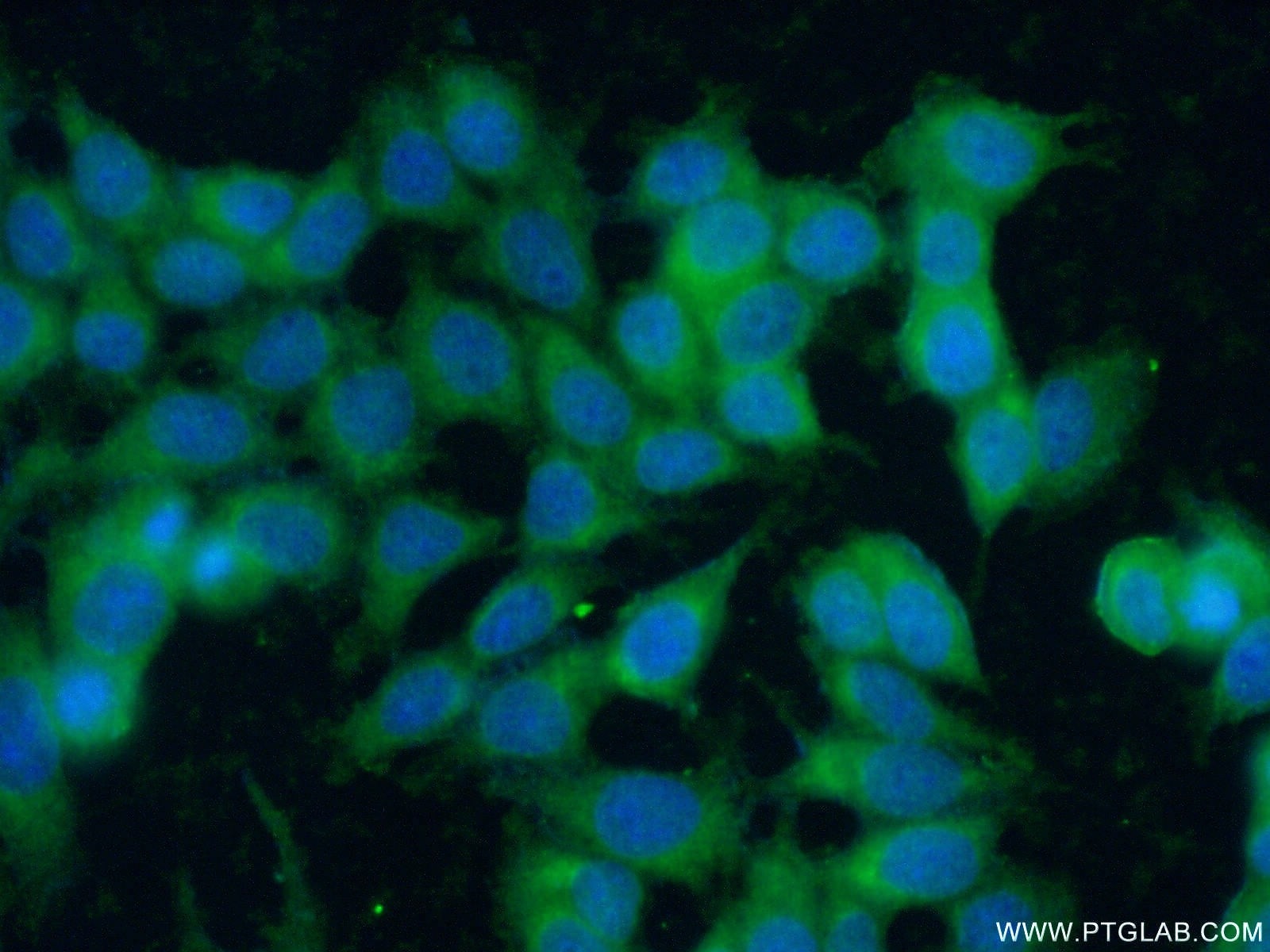Anticorps Polyclonal de lapin anti-CD117/c-Kit
CD117/c-Kit Polyclonal Antibody for WB, IHC, IF/ICC, ELISA
Hôte / Isotype
Lapin / IgG
Réactivité testée
Humain et plus (3)
Applications
WB, IHC, IF/ICC, ELISA
Conjugaison
Non conjugué
N° de cat : 18696-1-AP
Synonymes
Galerie de données de validation
Applications testées
| Résultats positifs en WB | Mo7e cells, |
| Résultats positifs en IHC | tissu stroma tumoral, tissu d'insulinome, tissu placentaire humain, tissu testiculaire humain il est suggéré de démasquer l'antigène avec un tampon de TE buffer pH 9.0; (*) À défaut, 'le démasquage de l'antigène peut être 'effectué avec un tampon citrate pH 6,0. |
| Résultats positifs en IF/ICC | cellules MCF-7 |
Dilution recommandée
| Application | Dilution |
|---|---|
| Western Blot (WB) | WB : 1:1000-1:4000 |
| Immunohistochimie (IHC) | IHC : 1:50-1:500 |
| Immunofluorescence (IF)/ICC | IF/ICC : 1:50-1:500 |
| It is recommended that this reagent should be titrated in each testing system to obtain optimal results. | |
| Sample-dependent, check data in validation data gallery | |
Applications publiées
| KD/KO | See 2 publications below |
| WB | See 14 publications below |
| IHC | See 14 publications below |
| IF | See 11 publications below |
Informations sur le produit
18696-1-AP cible CD117/c-Kit dans les applications de WB, IHC, IF/ICC, ELISA et montre une réactivité avec des échantillons Humain
| Réactivité | Humain |
| Réactivité citée | rat, Chèvre, Humain, souris |
| Hôte / Isotype | Lapin / IgG |
| Clonalité | Polyclonal |
| Type | Anticorps |
| Immunogène | Peptide |
| Nom complet | v-kit Hardy-Zuckerman 4 feline sarcoma viral oncogene homolog |
| Masse moléculaire calculée | 110 kDa |
| Poids moléculaire observé | 140-160 kDa |
| Numéro d’acquisition GenBank | BC071593 |
| Symbole du gène | CD117 |
| Identification du gène (NCBI) | 3815 |
| Conjugaison | Non conjugué |
| Forme | Liquide |
| Méthode de purification | Purification par affinité contre l'antigène |
| Tampon de stockage | PBS with 0.02% sodium azide and 50% glycerol |
| Conditions de stockage | Stocker à -20°C. Stable pendant un an après l'expédition. L'aliquotage n'est pas nécessaire pour le stockage à -20oC Les 20ul contiennent 0,1% de BSA. |
Informations générales
CD117, also known as c-Kit and SCFR, is a transmembrane protein with tyrosine kinase activity encoded by the oncogene c-kit (PMID: 2448137). It is a member of the type III receptor tyrosine kinase family, which also includes CSF-1R, PDGFRβ, PDGFRα, and FLT3 (PMID: 29518044). CD117 is expressed on hematopoietic stem cells and progenitor cells, mast cells, and is also found in a wide range of non-haemopoietic cell types (including melanocytes, germ cells, astrocytes, renal tubules, breast glandular epithelial cells, sweat glands, and interstitial cells of Cajal) (PMID: 10582338; 23073628). CD117 plays an important role in early hemopoiesis. It is also involved in pigmentation, fertility, gut movement, and some aspects of the nervous system (PMID: 23073628).
Protocole
| Product Specific Protocols | |
|---|---|
| WB protocol for CD117/c-Kit antibody 18696-1-AP | Download protocol |
| IHC protocol for CD117/c-Kit antibody 18696-1-AP | Download protocol |
| IF protocol for CD117/c-Kit antibody 18696-1-AP | Download protocol |
| Standard Protocols | |
|---|---|
| Click here to view our Standard Protocols |
Publications
| Species | Application | Title |
|---|---|---|
Adv Healthc Mater ROS-Responsive Hydrogel Delivering METRNL Enhances Bone Regeneration via Dual Stem Cell Homing and Vasculogenesis Activation | ||
Mech Ageing Dev Acceleration of melanocyte senescence by the proinflammatory cytokines IFNγ and TNFα impairs the repigmentation response of vitiligo patients to narrowband ultraviolet B (NBUVB) phototherapy | ||
Front Cell Dev Biol Single-Cell Sequencing Unveils the Heterogeneity of Nonimmune Cells in Chronic Apical Periodontitis. | ||
Front Immunol Immune Infiltrating Cells-Derived Risk Signature Based on Large-scale Analysis Defines Immune Landscape and Predicts Immunotherapy Responses in Glioma Tumor Microenvironment. | ||
J Exp Clin Cancer Res Growth differentiation factor 15 contributes to marrow adipocyte remodeling in response to the growth of leukemic cells. | ||
Andrology Exposure to elevated temperature affects the expression of piwi-interacting RNAs and associated transcripts in mouse testes |
Avis
The reviews below have been submitted by verified Proteintech customers who received an incentive for providing their feedback.
FH Reyes (Verified Customer) (02-14-2025) | Interestingly, CD117 (in green), marker of stem cells, seem to have marked some of the neurons (in red) of my epileptic TSC FFPE human cortex tissue.
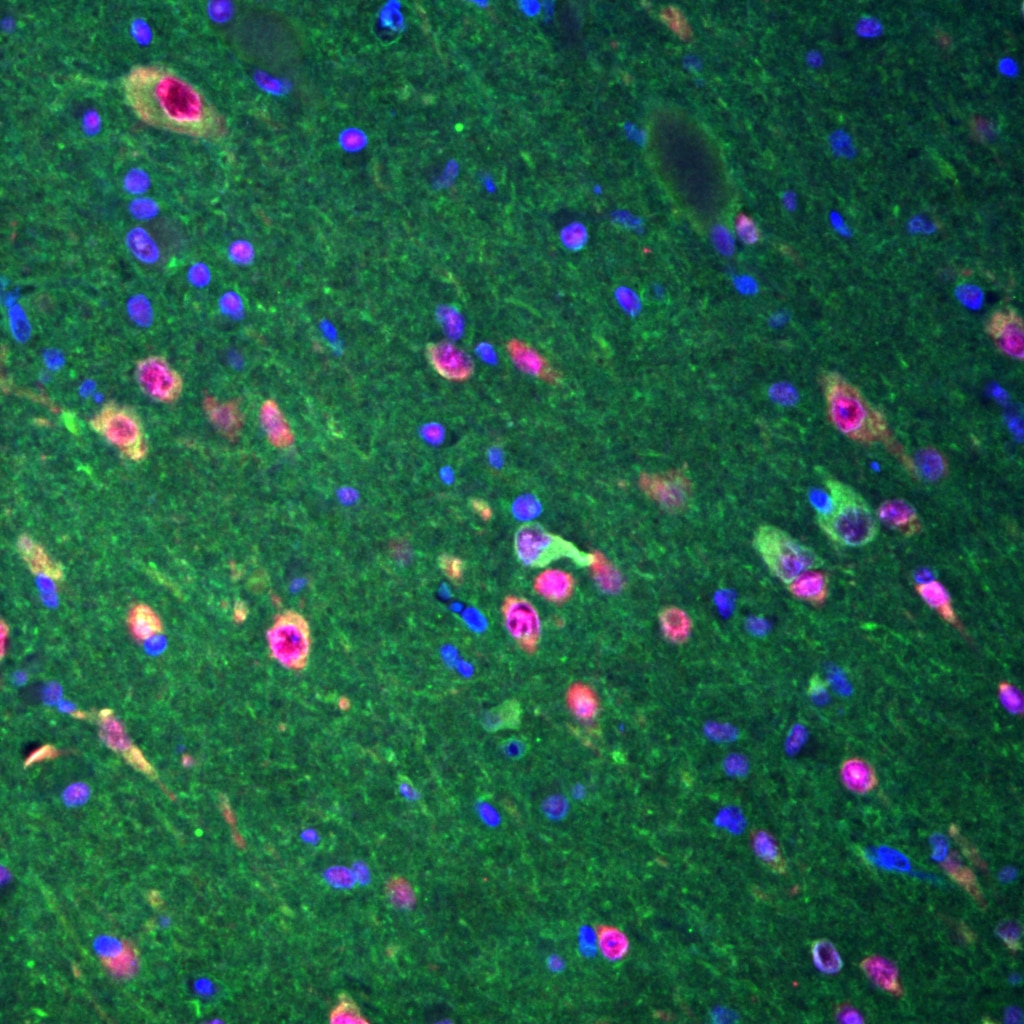 |
